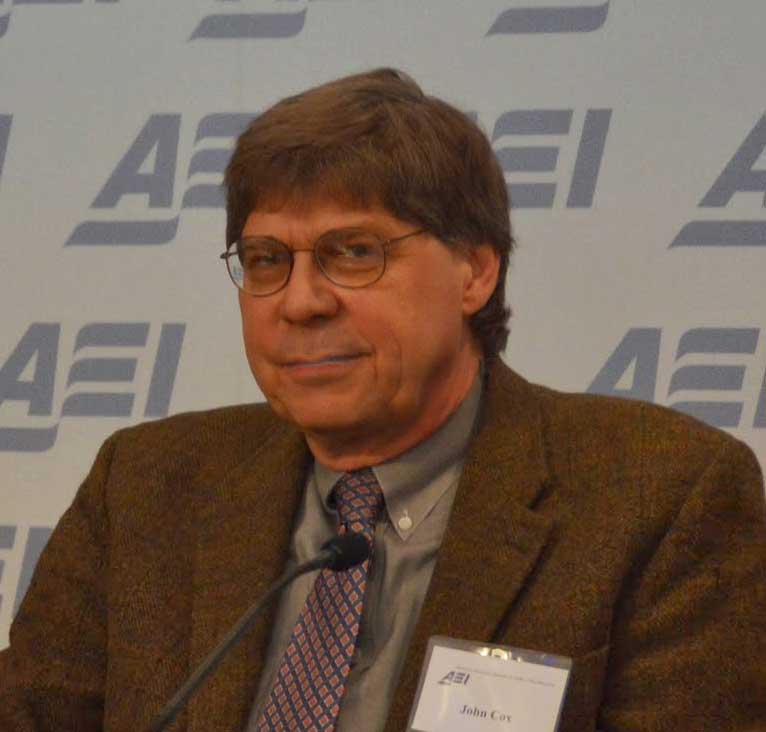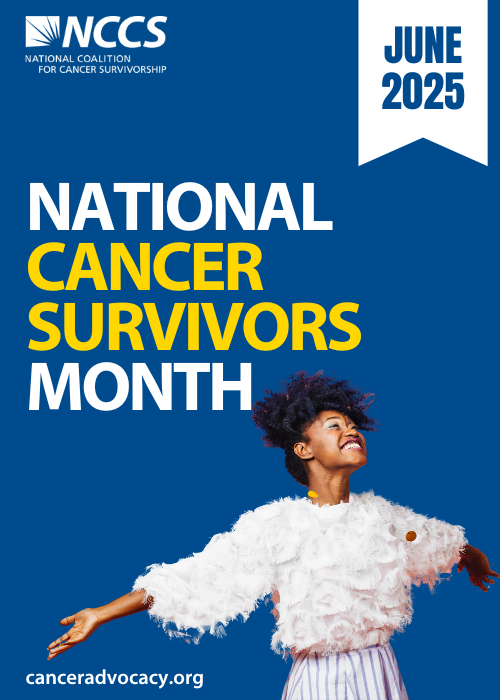Guest Post Series: Dr. John Cox Offers Physician’s Perspective on Oncology Care Model
The Centers for Medicare and Medicaid Services (CMS) recently announced the Oncology Care Model, a new payment model for physician practices administering chemotherapy that aims to provide higher quality, more highly coordinated oncology care at a lower cost to Medicare. This week, we’re presenting several different perspectives on the Oncology Care Model and how it will impact patients, providers, and cancer therapies. Be sure to read the other perspectives from Dr. Michael Ybarra, Senior Director, Alliance Development, PhRMA, and NCCS CEO Shelley Fuld Nasso.
Why are you doing this?
I have heard that question multiple times over the past months as I pressed our practice and institution to participate in the Center of Medicare Medicaid Innovation’s Oncology Care Model (CMMI OCM). On first read some maintain ‘we are already doing this’; others, with closer inspection of the requirements and asks of the program, note ‘we can’t do this’.

Post by Dr. John Cox, Medical Director, Oncology Services, Parkland Hospital (Pictured at 2014 “Putting the Cancer Patient First” event co-hosted by the American Enterprise Institute and the National Coalition for Cancer Survivorship)
Our current oncology care delivery models reflect the needs and priorities of the practice (regardless of site: private, institutional, or academic). These models demand a lot of patients, yet often have a tin ear to patient’s needs or their voice. Patients are given instructions on where & when to come – restricted to certain days or hours. They are told what to bring, including a depth of information that they have provided to multiple others in the health system over the prior weeks. Often they are asked to obtain records, images or pathology that were gained in other settings – indeed sometimes the very appointment they seek is dependent on obtaining these data elements for the oncology practice.
Contradictions in expectations continue once the patient is ‘in the door’. Patients are told to be prompt (“Practice policy: patients may not be seen if they are 15 minutes late”) yet often patients will spend over an hour waiting – sometimes without a note of recognition. Universally patients are asked for proof of insurance at each visit yet we often don’t address whether they are in pain or depressed. Access to the office is “managed” by phone systems with greetings explaining a bewildering phone tree and always leading with a declarative statement which imparts the message: ‘if you are ill, don’t bother us, go to the emergency room’. Contacting the office via phone often entails leaving a voice mail (another phone management tool) – though this must be done early in the day as the message notes calls will be returned before the end of the day, unless ‘received’ after 3 PM – then it will likely be the next day before the patient will get a return call and by the way if this won’t do – ‘go to the emergency room’. With staff ever rushed, conversations are often had with patients facing our backs – we are talking to the screen in front of us – clicking thru required boxes. Patient information and education is delivered via clipped conversations and the imparting of a stack of drug sheets explaining toxicities and decisions to come – and often a list of practice ‘policies’.
Oncology is amidst a revolution of the science that underpins the care we provide to patients. Indeed new approaches provide better definition of the diseases we treat and outline new and more specific therapies. We are seeing the fruits of better understandings of the genomic backbone of cancer. YET, how we deliver care in a timely, efficient way remains as thorny, complex puzzle as the disease itself.
Why is care delivery so difficult? Why is it not easier to re-structure how we work to better address patient’s needs? A truism is that care delivery is structured to align with the payment system. Restating a business adage: structure will ‘value what is valued’. Our current system reflects the ‘values’ in the system: volume-based payment, payment that is guided by accounting to a set of billing codes that are, in turn, connected to very prescriptive ‘documentation guidelines’, AND the influence of other regulatory layers – all initiated for a good reason – but the weight of the whole force attention to detailed check boxes that result in a ‘clean claim’ rather than the patient occupying the room. No practice can ignore these details, to do so fulfill the adage: ‘no money, no mission’.
Patients and physicians are frustrated. In any gathering each can recount stories that illustrate the broken system. Each tells those stories through their lens. For the past decade we have heard of experiments in care delivery that try to ‘wed’ the views – to give voice to concerns of both patient and provider. These efforts include a few practices that remove themselves completely from the insurance system of payment & regulatory underpinning to provide very personal ‘concierge care’ to the elite. Others have tried to bring systematic practice change built around patients’ needs whilst at the same time identifying potential areas of cost savings. These oncology medical homes have struggled to make the necessary investments to change practice structure while still being beholden to a fee-for-service (FFS) world, but several are beginning to show promise. Other large practices, health systems and payers are forging complex relationships to build oncology-specific accountable care organizations – with a focus on patients and care delivery outside of FFS methodologies entirely. Many hybrids and variations of these models are in play, though until now they have been relatively small pilots.
It is not a perfect model. It is not a finished model, though it will press us to change. We cannot hold to the past – as comfortable and familiar as those mechanisms of care are to us – we must embrace change, and try new ways of caring for our patients. Our science embraces experimentation and change – now our practices must.
About the Author: John V. Cox, DO, MBA, FACP – After more than 20 years in private practice, in February, Dr. Cox joined Parkland Hospital in Dallas as the Medical Director of Oncology Services. He completed a fellowship in medical oncology and hematology at the University of Texas Southwestern Medical School. He completed an MBA, with a certificate in medical management from University of Texas Dallas in 2008. He is an active leader in his hospital medical staff at Methodist Hospitals of Dallas and his group practice. He is active in the Texas Society of Clinical Oncology, and is the Texas oncology representative to the Texas Medicare Carrier Advisory Committee of Trailblazer. He served as a member of CMS’ Medicare Evidence Development & Coverage Advisory Committee from 2006 to 2010. Dr. Cox is active in ASCO and is a member of the Clinical Practice Committee, which he chaired from, 2005-2006. He has served on the HIT/EHR Workgroup since its formation in 2005, and is this group’s immediate past-Chair. Beginning in January of 2009, he became the editor and chief for the Journal of Oncology Practice (JOP). He serves as ASCO’s representative to the American College of Physician’s Council of Subspecialty Societies and serves on that body’s workgroup dealing with Patient Center Medical Home & has helped develop policy related to the role of specialty practices within the PCMH Neighborhood. The views & opinions expressed in any guest post featured on our site are those of the guest author and do not necessarily reflect the opinions & views of the National Coalition for Cancer Survivorship. Read our blog and comment policies here.





